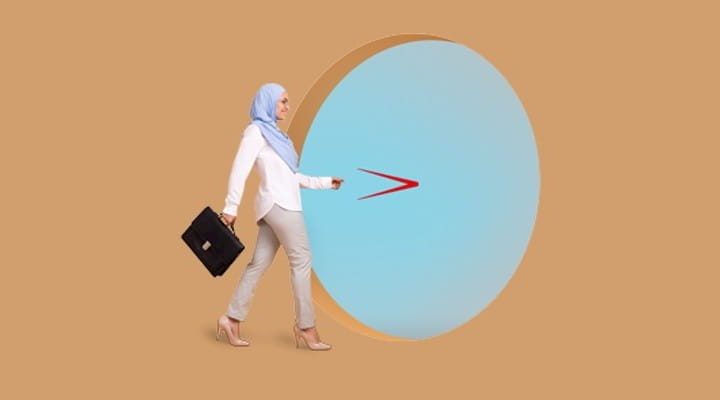In July 2022, ICAEW announced that its CPD requirements would be changing against a backdrop of intense scrutiny of the accountancy profession. The new rules provide much stronger assurance to the public and regulators that ICAEW Chartered Accountants are maintaining and enhancing their competence.
Alongside mandating an hour of ethics training each year, the revised CPD Regulations outline the minimum amount of CPD that members and individuals regulated by ICAEW should be doing to ensure they have up-to-date professional, technical, and business skills.
While many members will already be completing the required amount of professional development, the new rules provide greater clarity on how much CPD ICAEW believes is necessary.
CPD categories – a risk-based approach
Given the diversity of the profession, ICAEW has recognised that a one-size-fits-all approach to CPD is no longer appropriate, and the new rules are risk-based, with six categories requiring different amounts of CPD.
ICAEW President Julia Penny explains: “We’ve got CEOs and CFOs of major businesses, PIE (public interest entity) auditors and small High Street practitioners who do tax accounts for local businesses, so to expect the same of all of them is not sensible and would not reflect the different risks to the public in the nature of the work carried out.”
The revised CPD Regulations outline three CPD categories for practice and three for non-practice members, specifying the areas of work that fall within each of the CPD categories.
As part of the newly published guidance on the changes, ICAEW has created a CPD self-assessment tool to help members quickly identify which CPD category is most applicable to them.
The categories are important because they determine minimum annual CPD requirements and the proportion of CPD which will have to be ‘verifiable’. Those falling into category 1 (either practice or non-practice) will have the highest CPD requirements, and those in category 3 the lowest.
“A driving factor for the CPD categories has been the degree of risk to the public in the service or work that's being undertaken,” says Duncan Wiggetts, Chief Officer, Professional Standards Department, ICAEW
Are you affected?
Confirm whether you need to comply with ICAEW's CPD Regulations by answering a few simple questions about your work.

Verifiable CPD
Alongside the clarity provided on how much professional development should be undertaken each year, the revised regulations require that a proportion of those activities to be verified.
The new guidance clarifies that verifiable CPD is any activity which can be evidenced. This will capture much wider learning opportunities than just the traditional attendance on courses.
ICAEW’s President believes the requirement for some CPD hours to be verifiable is a positive step forward in terms of helping to boost the quality of members’ learning.
It's not just about sitting in your seat somewhere and listening to a lecturer. “It might be that,” says Penny. “But it might be elearning, or producing your own summary paper on a technical issue. So, we need to recognise what learning is all about today and give credit for it when assessing what’s been done.”
One of the significant changes in CPD requirements is that those affected provide a more detailed record of CPD activities and evidence of verifiable CPD will form a key part of this.
These records demonstrate that relevant professional development is being completed and will better able ICAEW to monitor compliance.
ICAEW is developing an online tool to help make maintaining this record a quick and easy task.
Firms’ responsibilities
Alongside revising individuals’ CPD obligations, the regulations have placed additional responsibility on ICAEW member firms, and other firms regulated by ICAEW.
Firms must ensure that ICAEW Chartered Accountants and relevant persons are compliant with the new requirements and to maintain records that can be inspected by ICAEW’s Quality Assurance Department (QAD) on request.
Guidance and support
To help members and firms get to grips with the changes, ICAEW has published a range of guidance at icaew.com/CPDchanges.
You can read an overview of the changes, alongside detailed support on who needs to comply and the types of entities, roles and concepts used within the CPD categories.
In its guidance for firms, ICAEW has outlined the key steps that they should be taking before November, as well as explaining the rule changes in detail.
ICAEW has also created a CPD self-assessment tool, to help identify which CPD category is most relevant to you (or your staff) and provided example case studies of how the new CPD requirements may be met.
ICAEW will continue to provide information, guidance and online tools to help those affected meet their new requirements over the coming months.
This includes a new elearning ethics CPD programme which will provide up to 12 hours of verifiable CPD for ICAEW members.
Launched alongside the details of the revised CPD Regulations, the course will provide a new one-hour module for ethics training each year to ensure all members will be able to meet their mandatory ethics requirement.
Find out more at icaew.com/EthicsCPDcourse.
Your guide to CPD
Read the six steps to help you understand your continuing professional development requirements and options for recording your CPD.




